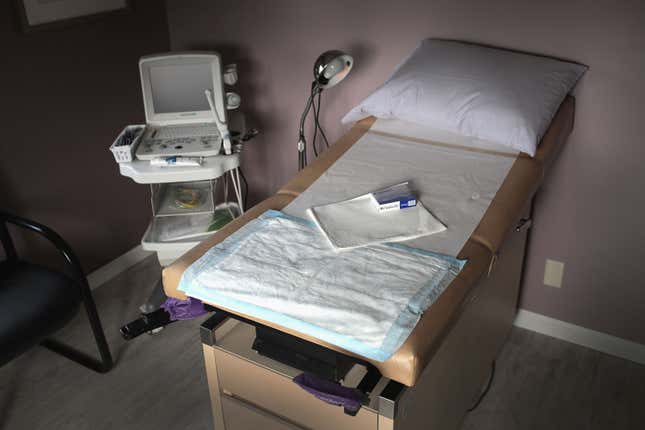How Not to Get Arrested for Miscarriage or Abortion: A Practical Guide
At this terrifyingly fraught time for pregnant people in the US, there are steps you can take to protect yourself from criminal suspicion and arrest.
AbortionPolitics

Over the weekend, Lizelle Herrera, a 26-year-old woman in Texas, was arrested and jailed, charged on suspicion of murder for allegedly self-inducing an abortion. The charges against Herrera were ultimately dropped on Sunday, but the damage had already been done: Yet another person was criminalized and incarcerated for the outcome of their pregnancy in the United States.
Herrera’s story quickly gained national attention and outrage, and the leadership of Black and brown activists in Texas ultimately won her freedom. But tragically, her story isn’t an anomaly: Nearly 1,300 people faced criminalization for pregnancy outcomes, including self-managed abortions, between 2006 and 2020. This number has tripled compared with the period between 1973 and 2005, according to National Advocates for Pregnant Women (NAPW). Laws like Texas’ near-total abortion ban, which incentivizes citizens to spy and sue each other, and escalating threats to Roe v. Wade that include a forthcoming case this summer have further shrouded abortion and pregnancy loss in stigma and criminal suspicion—especially as more and more people are ending pregnancies with medication abortion pills, which can’t be medically distinguished from miscarriage.
No one is ever to blame for losing a pregnancy, which is often traumatic enough in its own right, and no one is to blame, either, for facing criminal charges for this experience. But legal experts and reproductive justice advocates say there are crucial steps we can take to minimize our risk of criminalization and arrest at this increasingly dangerous time for pregnant people in the US.
“The primary risk people face when they’re self-managing an abortion is no longer medical, as was the case prior to Roe, but the risk of criminalization,” Farah Diaz-Tello, senior counsel and legal director of the reproductive justice legal advocacy group If/When/How, told Jezebel. If/When/How also runs the Repro Legal Defense Fund, which offers legal and financial support to people like Herrera. “The more people understand their rights, or how to keep their information private, the more protected people can be from criminalization.”
As Jezebel has previously reported, a pregnant person can be criminalized for eating poppyseeds and testing positive for substance use. Compounding the trauma of losing a pregnancy, someone who may have consumed alcohol and drugs can be charged with feticide, homicide, or child abuse, and arrested and incarcerated. The list of reasons some have faced arrest is virtually endless: surviving violence that results in miscarriage, experiencing stillbirth and “improperly” disposing of fetal remains, or even a home birth with complications.
That Herrera is a Latina woman can’t be ignored. People of color, who are more likely to be harmed by the criminal legal system, have disproportionately been the targets of pregnancy criminalization. It’s notable that like Purvi Patel, who was convicted of feticide in 2015 for allegedly self-inducing an abortion, Herrera was reported to the police by hospital staff. The medical system frequently colludes with law enforcement to police pregnant people; consider the prevalence of nonconsensual drug testing of pregnant patients, which has discouraged those with substance use struggles from seeking vital prenatal care. It’s why some advocates say reproductive justice requires abolition and decarceration.
The gutting of Roe, rapid spread of state abortion bans, and deterioration of our most basic privacy rights have created a perfect storm for pregnant people to be surveilled, criminalized, and incarcerated. Jezebel talked to If/When/How on how we can protect ourselves from criminalization for pregnancy loss and abortion.
-

-

-

-

-

-

-

-

-

-

-

-

-

-

-

-

-

-

-

-

-

-

-

-

-

-

-

-

-

-

-

-

-

-

-

-

-

-

-

-








































